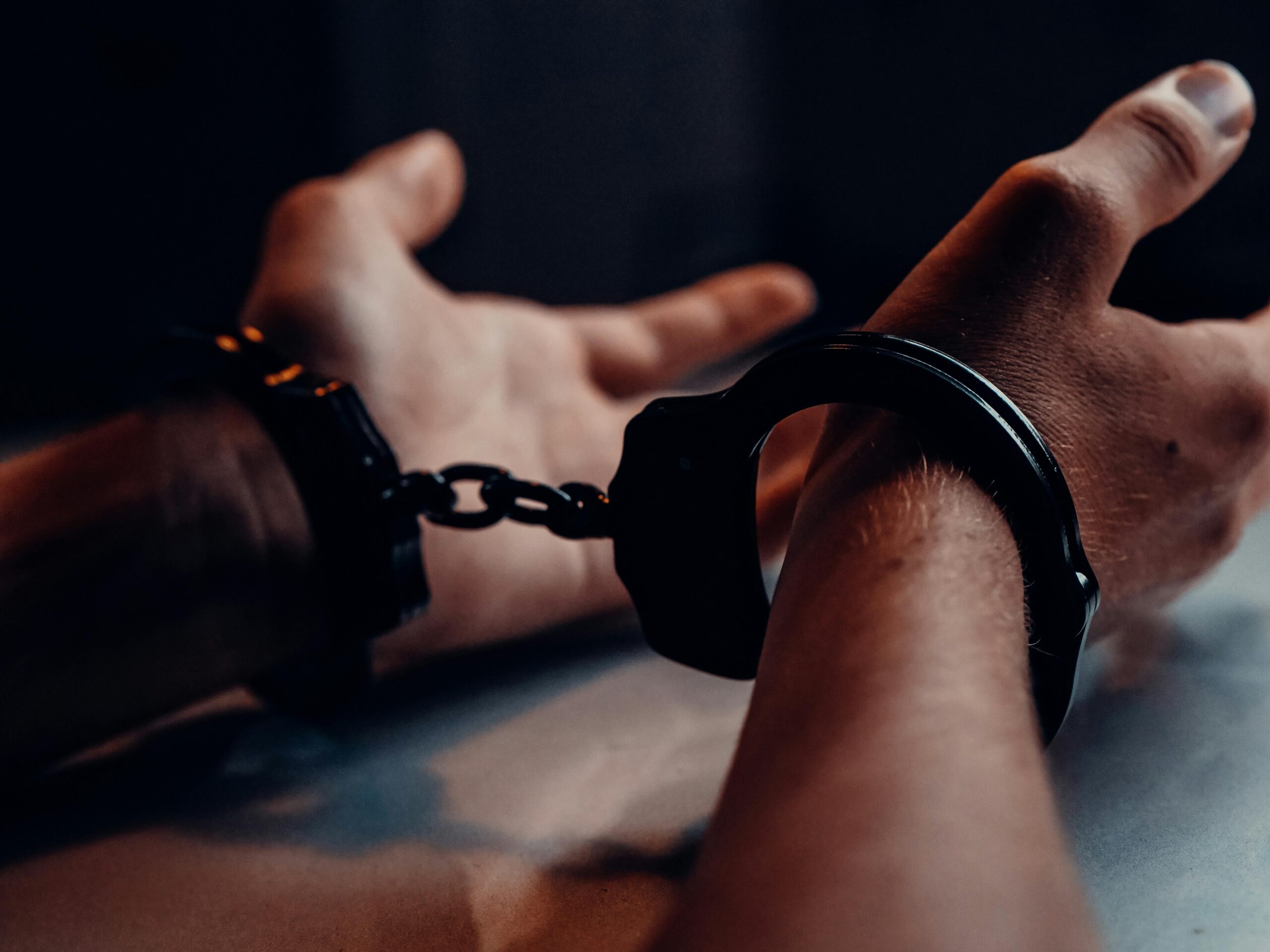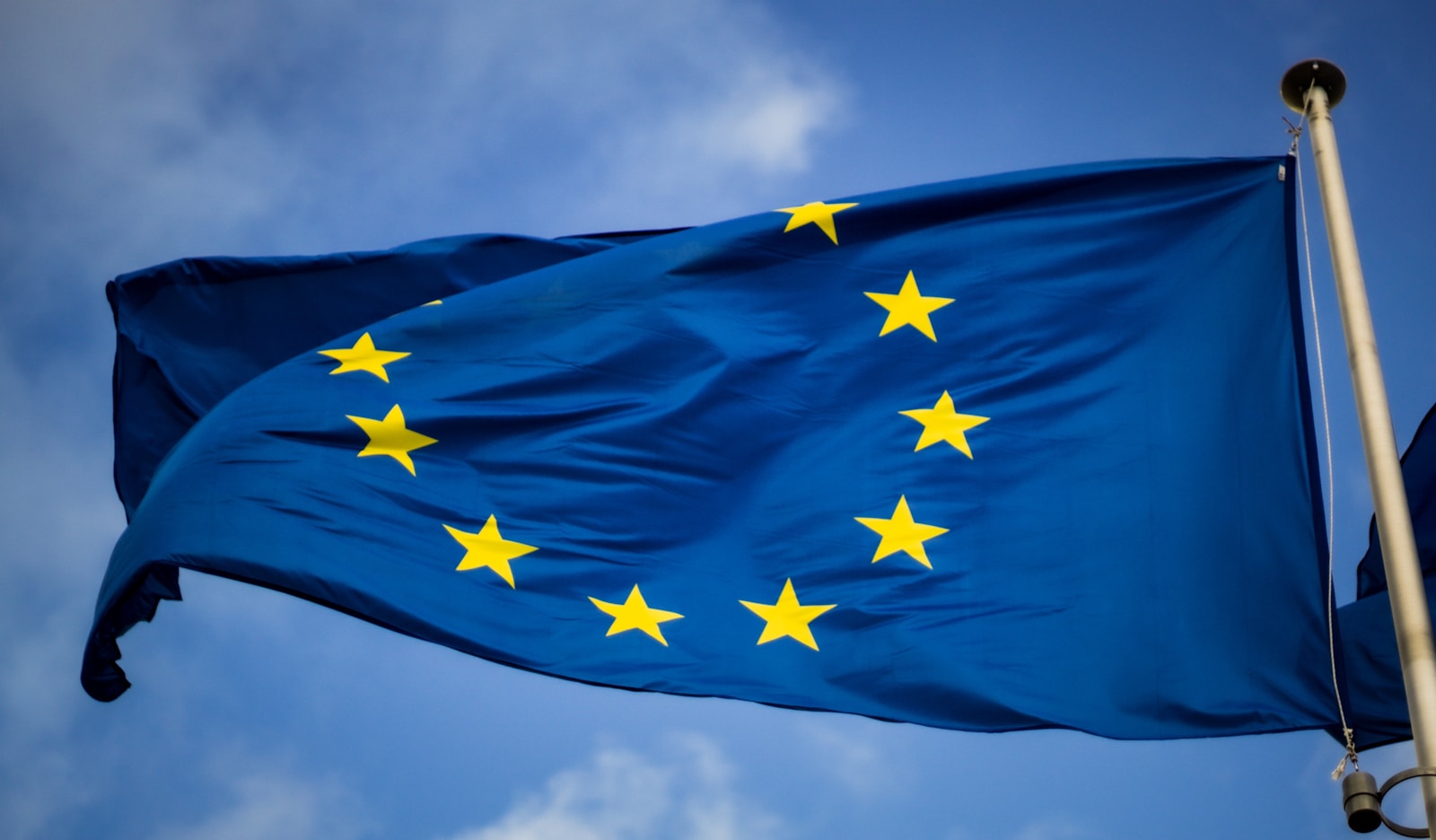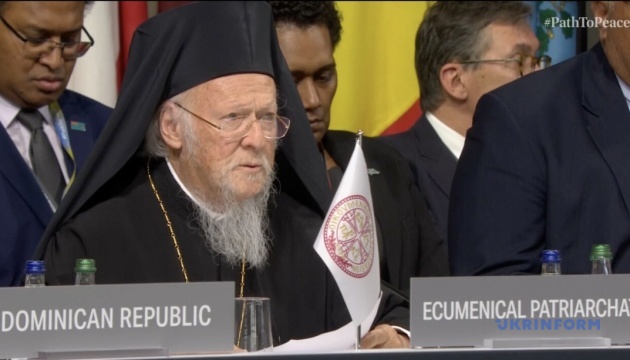Politics
“Vote” Elections 2024 President Metsola Do not let anyone else choose for yourself”
The Key Issues for the European Parliament Elections in 2024
Elections 2024: The European Parliament Elections 2024 will soon be upon us, and it is important to know the issues that are likely to dominate the election. This article gives an overview of key topics that will influence the election, including immigration policies and climate change. It also includes an important entry about why the management of fundamental rights is one of the most important things to consider when examining the programs of different parties.
Before we begin, let’s take a look at what the current President of European Parliament has to say. Roberta Metsola said:
“The European Union is constantly evolving.” We must adapt to the changing world. Reform is needed. We must not be afraid of change. The EU isn’t perfect. We must embrace this as we continue to listen, explain and deliver.
I encourage everyone to re-capture the sense that hope and possibilities that the European Union offers. To vote. Don’t let anyone else decide for you. Participate in the largest democratic exercise of Europe.
The Future of the European Union
The future of the European Union is one of the most important issues at stake during the European Parliament Elections in 2024. The election will be crucial for determining the future of the EU, given the challenges that continue to exist and the growing movements in Europe that want less EU involvement in national affairs. The election will be a hotly contested event, with heated debates on issues such as EU integration and the role of European Commission. The result of the election has a significant impact on the future of Europe.
Immigration and Border Control
Immigration and border control are also key issues in the European Parliament Elections of 2024. The ongoing refugee crises and the influx migrants into Europe has led to a heated discussion about how to control immigration and manage borders. Some parties support stricter border controls, while others advocate for more open borders. The result of the election is likely to have a major impact on immigration policy in Europe.
Climate Change and Environmental Policy
Climate change and environmental policy will be a major issue in the European Parliament Elections of 2024. The European Union has set itself ambitious goals to reduce greenhouse gases and transition to a sustainable economy. There are still debates on the best way to achieve this goal and how to balance economic growth with environmental concerns. The direction of EU will be determined by the election environmental policies The role of the United States in combating climate change.
Economic Growth and Job creation
Economic growth and job creation are also important issues in the European Parliament Elections of 2024. The COVID-19 epidemic has had a major impact on the European Economy. Many businesses are struggling to stay afloat, and unemployment rates are rising. The election will determine which policies and strategies will be implemented to support economic recovery in the EU and create jobs. This includes discussions about taxation, trade deals, and investments in key industries like technology and renewable energies.
Digital Transformation and Data Privacy
The European Parliament Elections of 2024 will also focus on digital transformation and data security. The digital transformation and data privacy are also key issues in the European Parliament Elections 2024. Use of technology In all areas of life, from government to business, data privacy and security is becoming a major concern. The election will determine which policies and regulations will be implemented to protect citizens’ data and hold companies accountable for any breaches. The election will also address the need for digitalization in various sectors including healthcare, education and public services to improve efficiency and access while also addressing concerns over data privacy and security.
Why Fundamental Rights should be a Priority for the European Parliament Elections
Fundamental rights are human rights that everyone is entitled to regardless of race, gender, religious beliefs, or any other characteristic. As citizens of the European Union we have the right to vote at the European Parliament Elections and ensure that these rights are protected and prioritized by our leaders. Let’s make sure that our voices are heard and we advocate for a fair and just society.
What are the fundamental rights?
Fundamental rights are basic human rights to which every person has a right, regardless of race, gender or religion. These rights include the rights to life, liberty and security of the person, freedoms of expression and religion and the right of a fair trial. They also include the right of education and healthcare. These rights are the foundation for a just society and must be protected by all.
The importance of fundamental human rights in a democracy
In a democracy, fundamental rights are vital to ensure that each individual is treated with dignity and fairness. These rights protect individuals from oppression, discrimination, and abuse of authority. There can be no democracy without fundamental rights. Without them, citizens would not be able to participate in democratic processes. It is important that fundamental rights be protected and prioritized in the European Parliament election to ensure that all citizens are able to live in a fair and just society.
The impact of the European Parliament’s fundamental rights.
The European Parliament is a key player in protecting and promoting the fundamental rights of all citizens within the European Union. The European Parliament can ensure that these fundamental rights are respected by member states and institutions through legislation, oversight and advocacy. It is crucial that in the upcoming elections we elect leaders who are committed to protecting fundamental rights for all citizens regardless of their background. We can create a more inclusive, stronger Europe by valuing the dignity and worth each individual.
Examples of fundamental rights which need protection
Fundamental rights are fundamental freedoms and rights that every human being is entitled to simply because they are human. These include the rights to life, liberty and security of person as well as freedom of expression. Freedom of religion or belief, the right of a fair trial and the rights to education and healthcare. In recent years there has been a growing concern about the erosion of rights in Europe. This is especially true in areas like freedom of press, privacy and non-discrimination. It is important that we elect leaders committed to protecting and ensuring these fundamental rights are upheld by all citizens.
How to vote for candidates that prioritize fundamental rights.
It’s important that you research the candidates before voting in the European Parliament Elections. This includes their positions on fundamental rights. Look for candidates with a history of defending these rights and concrete plans to protect them. You can also look at the party platforms to determine if fundamental rights are prioritized. Do not be afraid to contact candidates directly to ask about their views on these issues. Prioritizing fundamental rights when we vote can help us ensure that our leaders will work to create a just and equal society for everyone.
Source link
Politics
The leader of the independence protests in New Caledonia arrested

Police in New Caledonia have arrested the leader of the country’s independence protest, Reuters reports. Christian Thane was detained before giving a press conference. Apart from Thane, seven other people have been arrested.
Thane led a branch of the Caledonian Union, which organized barricades in the capital Noumea that disrupted traffic, movement and food supplies. He was among the pro-independence political figures who met French President Emmanuel Macron during his visit to New Caledonia.
Nine people died, including two policemen, in the unrest that gripped New Caledonia last month after France proposed electoral reforms allowing thousands of French residents who have lived in the French Pacific territory for more than 10 years to vote.
Local Kanaks fear this will dilute the vote and make it more difficult to hold a future independence referendum. According to Paris, the measure is necessary to improve democracy.
Macron announced last week that he was suspending electoral reform. Pro-independence groups for New Caledonia want it to be fully withdrawn before dialogue on the island’s political future can begin again.
New Caledonia’s international airport reopened this week, although a curfew is still in place and several thousand French police reinforcements remain.
Illustrative Photo by Kindel Media: https://www.pexels.com/photo/a-person-s-hands-on-the-table-wearing-handcuffs-7773260/
Politics
Enlargement: how do countries join the EU?

EU enlargement is a way to foster peace and stability in Europe, increase prosperity for Europeans and create opportunities for companies.
Countries preparing to join benefit from closer ties with the EU, stronger support for fundamental rights as well as from funding and expertise from the EU to make the process easier.
In December 2023, EU leaders announced that the EU would recognise Georgia as a candidate country and would start accession talks with Ukraine and Moldova. The accession talks with Ukraine and Moldova formally started on 25 June 2024. In March 2024, EU leaders also agreed to launch accession talks with Bosnia and Herzegovina.
Which countries want to join the EU?
The EU has recognised Albania, Bosnia and Herzegovina, Georgia, Moldova, Montenegro, North Macedonia, Serbia, Ukraine and Türkiye as candidate countries for EU membership, though accession negotiations with Türkiye have been frozen since 2018. This is something MEPs had called for on various occasions due to concerns over the situation in Türkiye, including the rule of law and media freedom.
Kosovo is a potential candidate country.
Who can join the EU? What are the requirements for EU membership?
In order to apply for EU membership, a country has to be European and respect the EU’s democratic values. It also needs stable institutions guaranteeing democracy and the rule of law; a functioning market economy; and the ability to take on and carry out the obligations of EU membership.
What support do candidate countries and potential candidate countries benefit from?
Candidate countries and potential candidate countries benefit from EU funding, detailed policy advice, as well as Association Agreements, giving far-reaching access to the EU’s internal market.
How does the enlargement process work?
A country can become an official candidate once it meets basic political, economic and reform criteria. It can then start formal negotiations on 35 chapters covering many different policy areas with the EU.
Once negotiations and reforms have been completed, an accession treaty is finalised, which needs to be ratified by all existing EU member states and the country itself before the country can join the EU.
What is the history of EU enlargement?
The EU started in 1952 as the European Communities with six founding members: Belgium, France, Germany, Italy, Luxembourg, and Netherlands. The first enlargement took part in 1973 when Denmark, Ireland and the UK joined.
In the 1980s, Greece joined in 1981, followed by Spain and Portugal five years later after emerging from dictatorships in the 1970s. In 1985 Greenland, which is an autonomous part of Denmark with a local government responsible for judicial affairs, policing and natural resources, became the first territory to leave the EU.
The fall of the Berlin Wall and the subsequent collapse of the Soviet Union changed everything again. In 1995 Austria, Finland and Sweden joined the EU. This was followed by two waves of Central and Eastern European countries joining. The Czech Republic, Estonia, Hungary, Latvia, Lithuania, Poland, Slovakia, and Slovenia as well as Cyprus and Malta joined in 2004. In 2007, it was the turn of Bulgaria and Romania.
Croatia became the most recent country to join the EU in 2013. Meanwhile, the UK left the EU in 2020.
What is the current situation for EU enlargement?
Russia’s full-scale invasion of Ukraine in 2022 led to Georgia, Moldova and Ukraine submitting applications for EU membership. The EU formally launched accession talks with Moldova and Ukraine in June 2024, while Georgia was recognised as a candidate country in December 2023.
The EU is also keen to give Western Balkan countries, who have been part of the enlargement process for a long time, a clear path to membership to help stabilise the region and promote fundamental reforms and good neighbourly relations.
What is the role of the Parliament?
MEPs debate and vote on annual progress reports for each country, which is an opportunity to identify areas of concerns.
The Parliament’s approval is also required before a country can join the EU.
Parliament has remained supportive of the enlargement process. President Roberta Metsola called it the EU’s strongest geopolitical tool in a speech to the European Council in October 2023. “That is why the European Parliament had called for Ukraine and Moldova to receive EU candidate status,” she said. “This status gives a clear European perspective to these nations and serves as a powerful impetus for advancing democratic reforms. A quick look back at the last 20 years can illustrate the transformative power of enlargement. That is why we want to go the next step by the end of the year if those countries are ready.”
On various occasions Parliament called for the EU’s doors to be opened to Ukraine and Moldova. In July 2022 MEPs welcomed the Council decision to start the accession process with the two countries.
Parliament continues to support the accession of the Western Balkans countries to the EU. In a resolution adopted in June 2020, MEPs call on the EU to do more to make the enlargement process for these countries a success.
In a resolution adopted in December 2023, Parliament called on the EU to open accession talks with Moldova and Ukraine as well as with Bosnia and Herzegovina, provided the country takes certain reform steps. MEPs also called for a clear timetable to conclude negotiations by the end of this decade and for Georgia to be recognised as a candidate country.
Source: European Commission
Politics
Patriarch Bartholomew: To remain silent in the face of the cruelty of war is shameful!

“War is always destructive. To remain silent in the face of the cruelty of war is shameful! It is our duty and mission to protect and promote peace. “Blessed are the peacemakers” (Matt. 5:9). With these words, His Holiness the Ecumenical Patriarch Bartholomew began his short address to the International Summit for Peace in Ukraine, which was attended by leaders and representatives of about one hundred countries and international organizations, and which took place on June 15-16, 2024, in the Bürgenstock resort , Switzerland.
The Patriarch emphasized the importance and value of dialogue, which, in his words, is the driving force of this conference.
Regarding the granting of autocephaly to the Orthodox Church of Ukraine, he emphasized that the Ecumenical Patriarchate responded to the “pastoral needs of the Orthodox believers in Ukraine”: “On January 5, 2019, in response to the pastoral needs of the Orthodox believers in Ukraine, the Ecumenical Patriarchate decreed the Orthodox Church of Ukraine as an autocephalous or self-governing ecclesiastical entity independent of the Moscow Patriarchate. And we did this despite all the difficulties and at any cost, because we firmly believe that Orthodox Christians in Ukraine deserve their own church voice. We are all here to support a just and lasting peace in a sovereign Ukraine. May God rest in peace all those who tragically lost their lives and give strength to all those who defend the peace.”
According to a press release, during the summit the Ecumenical Patriarch had the opportunity to meet and talk with the presidents of Ukraine Volodymyr Zelensky, France Emmanuel Macron and Georgia Salome Zourabishvili, with the Prime Minister of Greece Kyriakos Mitsotakis, the Vatican Secretary of State Monsignor Petro Parolin, with Hakan Fidan, Minister of Foreign Affairs of Turkey, and others.
An interesting detail of the picture of the meeting is the attempt to create a “problem” around the participation of the Ecumenical Patriarch, who attended the meeting as a representative of Turkey, but with the flag of the Patriarchate. Turkey was represented by its foreign minister, Hakan Fidan, and by Patriarch Bartholomew. Highlighting the coverage of the “church participation” in the meeting in the pro-Russian media was the status of the patriarch, who participated with the title of Ecumenical Patriarch. In Turkey, however, his status is recognized only as “Greek Patriarch of Fener”. The presence of his signature as “Ecumenical Patriarch” under the general declaration led the Turkish authorities to emphasize again that they do not recognize Patriarch Bartholomew such a title and role in world Orthodoxy that was inherited from the Byzantine Empire, and he is only the head of the “Greek religious minority ” in the country and can only represent him. The Turkish foreign minister also denied having an official personal meeting with the patriarch within the framework of the conference. This position particularly impresses the Russian policy aimed at compromising and belittling the role of the Ecumenical Patriarchate at all levels and on all occasions.
Turkish media also noted that the Vatican, which attended with observer status through its secretary of state, did not sign the joint declaration signed by Turkey. South Africa, Saudi Arabia, India, South Africa, Thailand, Indonesia, Mexico and the UAE did not sign the declaration. To date, the declaration has been signed by seventy-nine countries and six international organizations.
-

 EU & the World5 days ago
EU & the World5 days ago‘HSM’ Alum Bart Johnson Defends Sister-In-Law Blake Lively Amid Online Backlash
-

 Sports2 days ago
Sports2 days agoMercedes celebrates Monza: “Goosebumps.”
-

 Politics6 days ago
Politics6 days agoEU Intensifies Pressure: Six-Month Extension of Russia Sanctions
-

 Health & Society5 days ago
Health & Society5 days ago7 Superfoods That Will Boost Your Fitness Results
-

 Sports5 days ago
Sports5 days agoFiorentina miracle: nine qualify for the Conference League rounds
-
Travel4 days ago
Venice 2024 review: ‘Babygirl’ – Nicole Kidman shines in sex-positive BDSM drama
-

 Sports1 day ago
Sports1 day agoCharles Leclerc at Monza outperformed even Michael Schumacher.
-

 Health & Society4 days ago
Health & Society4 days agoMarathon of documentaries on Drug Prevention for International Day Against Drugs









